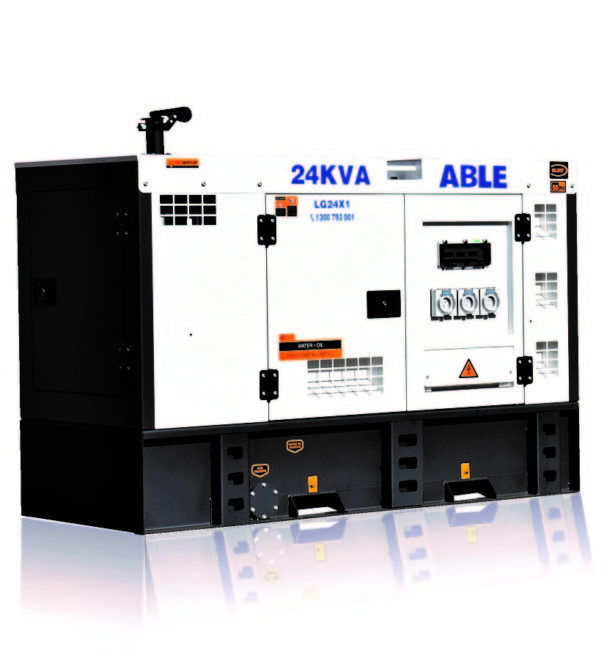Are you in the process of buying a generator for your home or office? With a plethora of options available on the racks, it is, by no means, an easy task to get the right generator to fulfill your needs. Prior knowledge of the different kinds of Gensets available in the marketplace can help your cause. Here, we will be discussing the features and differences between the three-phase and single-phase generators that provide power in different ways.
Single-Phase and Three-Phase Power Generators – an Overview
The most prominent difference between these two types of generators is in terms of power delivery. It is important to note that both Genset types give you AC power. However, power delivery is in the form of three stages in a three-phase system and is delivered sequentially. This, in turn, guarantees a continuous and uninterrupted flow of power supply. Given the capabilities of three-phase generators to supply power consistently, they are considered to be more effective in performance than the single-phase generators.
Main Differences Between Single and 3-phase Generators
If larger, commercial businesses are to be powered by a generator, it’s recommended that you opt for a three-phase one for efficient performance. These Gensets operate in a typical voltage capacity of 480 volts. Along with electric motors and equipment, industrial areas and data centers usually opt for the type of power delivered by 3-phase Gensets. You can visit site of the manufacturer to understand the capabilities of different types of generators and buy the one that meets your needs. It’s observed that they may need higher levels of maintenance across the year in comparison to the single-phased power generation systems. The unbeatable efficiency and reliability of these power suppliers are keeping all kinds of industrial operations in top shape, always.

Single & Three Phase Gensets – Features and Functionality
If you research carefully, you’ll generally come across generators featuring the following in the single-phase and 3-phase categories:
- Air-cooled
- Alternator style with inverter
- Diesel/ petrol run
- Water-cooled
The single-phase power generating equipment is known to deliver a continuously alternating wave of power. However, the level of power generated by such systems may vary from time to time. This effectively means that the levels of electricity are likely to plummet to nil at certain points of the power generation cycle. Such performance may be suited for residential spaces wherein no major problems come to the fore even if the power generation cycle shuts down for a while. These Gensets are cheaper and less complicated than the three-phase ones. The upside is that they do not require high installation and maintenance expenditure. The installation of a single-phase generator depends on the necessity of the facility in which it will be used.
Three-phase backup Gensets are more useful for commercial and industrial areas. For instance, the 3 phase backup ones are very popular for their increased distribution capacity. In such places, these generators can power multiple racks; this is not possible with the single-phase systems. Suppliers of generators have the right technology and methods in place to offer the right support and backup. It is recommended that you speak to experts in the field of generator-backed power systems to understand the best equipment for your needs.
Three-Phase Power Generators and Their Utility
3-phase Gensets are often more desirable than 1-phase power systems. An important benefit is the production of instantaneous power. It is possible to generate power or consume the same at any given point in the power life cycle.
Characteristics of 3-phase Generator
– Used in high-density and power-hungry data centres.
– Three-phase installations use lower voltages and less expensive wiring to make them more feasible for commercial establishments.
– They are highly recommended for heavy-duty, agricultural, commercial, industrial and professional applications. In most cases, these applications need constant and intensive power.
Way Forward
Commonly, single-phase power generation systems are purchased for use in residential spaces. On the other hand, their 3-phase counterparts are mainly used for industrial places. In case you are planning to purchase a generator for use in rural regions then it is advised to go for the single-phase ones. As these small equipment pieces are not dependent on high-voltage and continuous power, they are capable of providing efficient means of power at a lower cost. In most instances, these generators operate in a range of 120 to 240 volts. Get ready to buy the right generator with these tips in place!

COMMENTS